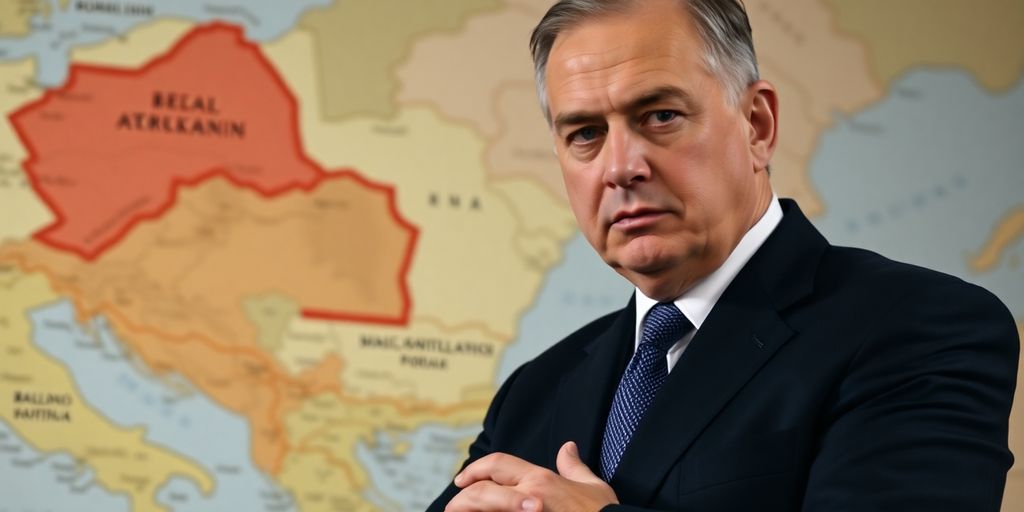Bosnian Serb Leader Milorad Dodik’s Kremlin Ties Spark Regional Instability
Bosnian Serb leader Milorad Dodik’s continued defiance of international peace efforts, bolstered by strong Kremlin support, is pushing Bosnia and Herzegovina towards its most severe crisis since the 1990s war. Despite a criminal conviction, Dodik maintains his grip on power in Republika Srpska, raising significant concerns for regional stability.
Key Takeaways
- Milorad Dodik, despite a criminal conviction for defying an international peace envoy, remains at the helm of Republika Srpska.
- Dodik’s frequent visits to Russian President Vladimir Putin underscore the Kremlin’s role in destabilizing the region.
- His actions are seen as an open confrontation with the central Bosnian government, leveraging Russia to bolster his position.
- Experts warn that the situation is tense and unpredictable, risking a return to the instability of the 1990s.
Dodik’s Defiance And Russian Alliance
Milorad Dodik has repeatedly visited Russian President Vladimir Putin, using these meetings to fan the flames of ethnic separatism at home. He has openly praised Putin and supported the invasion of Ukraine, echoing false Kremlin narratives, including claims of the "extermination of the Russian population in Ukraine."
These trips, while international, are primarily motivated by domestic concerns. Dodik has historically relied on threats of secession to garner support among the region’s ethnic Serb majority. With Russia’s full-scale invasion of Ukraine, Dodik saw an opportunity to solidify Moscow’s support for his regime, believing the Kremlin would favor a more brazen secessionist policy.
Showdown In Court And Political Crisis
The tipping point came in 2023 when Dodik supported a controversial measure to suspend the rulings of Bosnia’s Constitutional Court within Republika Srpska. This move directly challenged the Dayton Accords, which ended the civil war in 1995 and established the role of a high representative to oversee the peace agreement’s civilian implementation.
Christian Schmidt, the current high representative, annulled Dodik’s judicial measure and amended the criminal code to make defying the "constitutional order" a crime. Despite this, Dodik signed the measure into law, leading to his indictment and subsequent conviction in February. He was sentenced to one year in jail and banned from office for six years. An attempt by state police to arrest Dodik was repelled by Republika Srpska police, highlighting the depth of the crisis.
International Concerns And Future Outlook
The Office of the High Representative has described Dodik’s actions as a "de facto coup d’etat" that threatens Bosnia and Herzegovina’s constitutional order and its bid for EU membership. While many do not anticipate a full-scale return to violence, experts warn that tensions could escalate, and small-scale conflicts are possible.
Dodik shows no signs of backing down, having announced plans for Republika Srpska to form an independent border police force. This move is seen as a significant escalation, potentially leading to the slow integration of Republika Srpska into Serbia and restrictions on movement within Bosnia and Herzegovina’s internal boundaries. The international community remains concerned about Russia’s growing influence in the region, with reports of pro-Kremlin hybrid warfare operations further exacerbating the instability.






